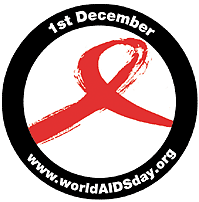HIV/AIDS Facts

- Approximately 1000 people have died of the Ebola virus.
- HIV AIDS claims 7000 lives a DAY.
- The HIV epidemic now ranks as the most devastating humanity has ever faced.
- Globally, more than 60 million people have been infected.
- Twenty million have died.
- There are 14 million AIDS orphans who have lost one or both parents in the world
- Less than 4% of those in need in the developing world have access to antiretroviral treatment
- HIV/AIDS is now the leading cause of death in sub-Saharan Africa and the fourth biggest global killer.
- AIDS has wiped out fifty years of progress. Life expectancy in sub-Saharan Africa is now 47 years, when it would have been 62 years without AIDS.
- HIV/AIDS will kill more people this decade than all the wars and disasters in the past 50 years.
- In 2001, AIDS killed 3 million people, 580,000 were children
- In 2001, 5 million people became infected with HIV, 800,000 are children
- In 2001, 40 million people were living with HIV AIDS, 2.7 million are children
- 68 million people will die because of AIDS in the 45 most affected countries between 2000 and 2020, more than five times the 13 million deaths of the previous two decades of the epidemic in those countries.
- In some southern African countries up to one-half of new mothers could die of AIDS.
Stigma & Discrimination
- Stigma and discrimination are the major obstacles to effective HIV/AIDS prevention and care.
- Fear of discrimination may prevent people from seeking treatment for AIDS or from acknowledging their HIV status publicly.
- People with, or suspected of having, HIV may be turned away from health care services, denied housing and employment, shunned by their friends and colleagues, turned down for insurance coverage or refused entry into foreign countries.
- In some cases, they may be evicted from home by their families, divorced by their spouses, and suffer physical violence or even murder.
Good News
- Zambia may become the second African country (after Uganda) to reverse a widespread epidemic. HIV prevalence is falling among young women there-from 28% in 1996 to 24% in 1999 in cities, and from 16% to 12% in rural areas-and both men and women in Zambia's cities report safer sexual behaviour.
- HIV prevalence continues to drop in Uganda, Africa's greatest success story in the fight against AIDS. At the end of 2001, adult HIV prevalence had fallen to 5%, down from 8.3% in 1999.
- By mounting a strong national response, the Polish Government has successfully curtailed the epidemic among injecting drug users and prevented it from gaining a foothold in the wider population.
MORE





